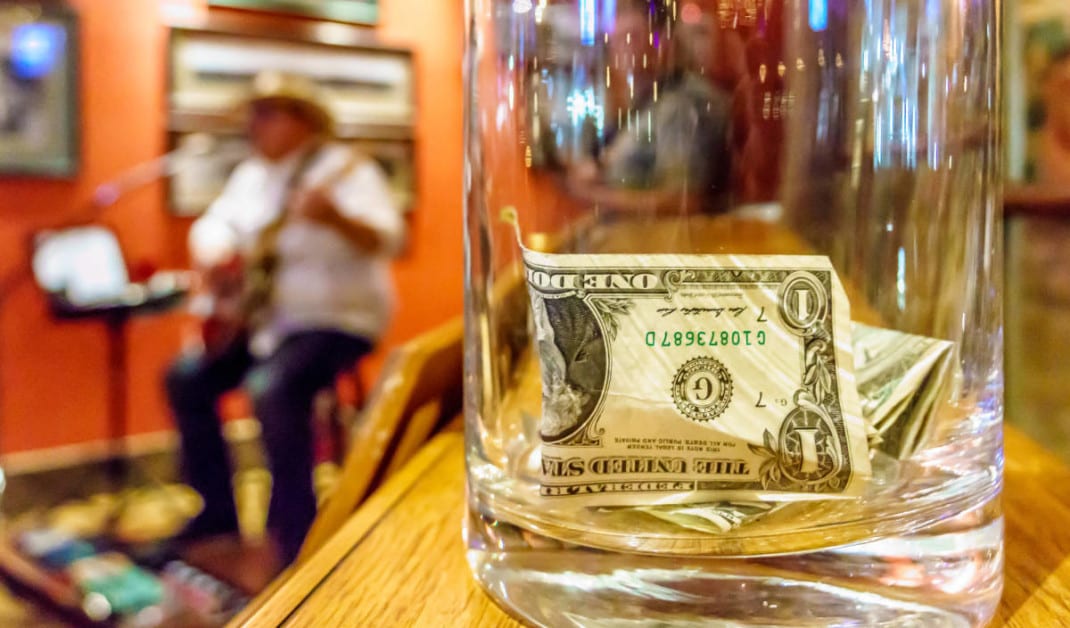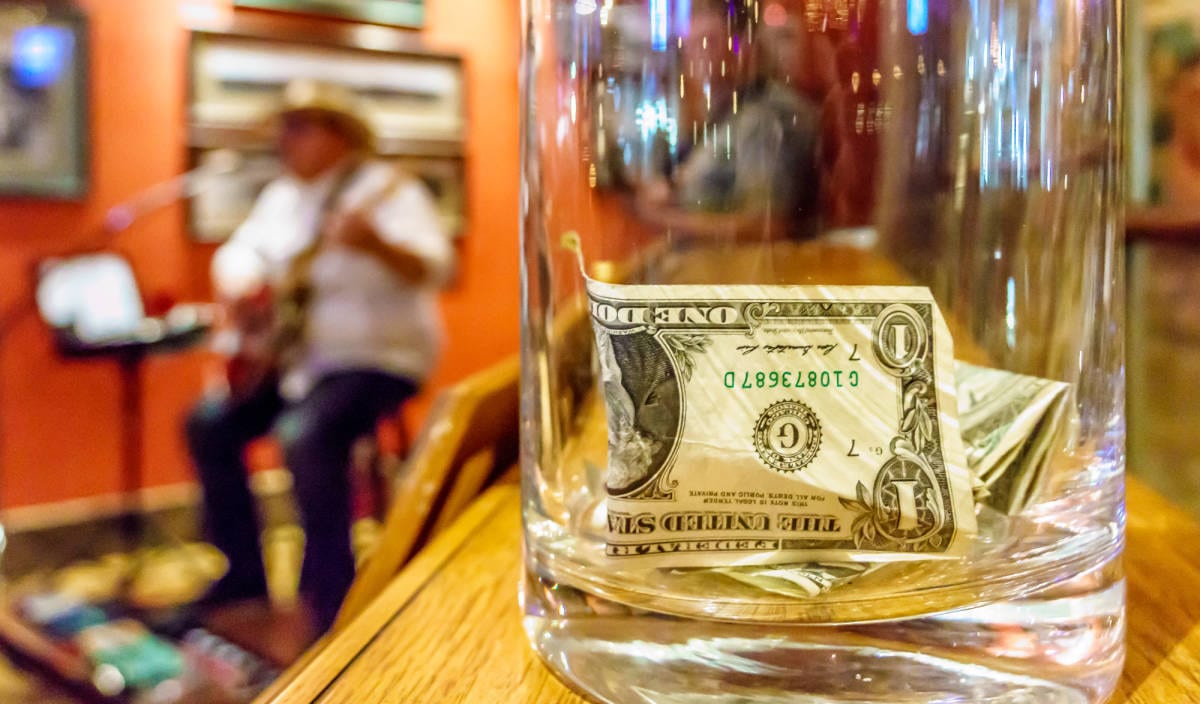
I’m not sure if this article has any relevance to current times, the current region, or current musicians (the intended audience). It should. What if I told you that in 1967 side men were guaranteed to be paid at least $48 per gig? Freebies were unheard of. Charity gigs were distributed to groups by the union and usually subsidized. The $48 guarantee was a minimum: top call musicians were free to charge more, and they did. The union handled taxes. Union dues were $50 annually. The band’s leader turned in the job union hall to keep the record straight and legit.
This was the result of the American Federation of Musicians (AFM). I belonged to Local 4, Cleveland, Ohio. Every other musician that I knew that was gigging did also. To join the union, there was a competency test for your given instrument. This amounted to simple things like basic single note sight reading, ability to play the instrument in an entertaining way, and a few references from current union members.
The unravelling
At the time, 1967, this union local was managed by the players from The Cleveland Orchestra, one of the world’s preeminent symphonies. While negotiating contracts for themselves, they also established pay guidelines for studio work, concert and event work, broadcasting work, and lounge work. Everyone was paid well; rock and roll was blooming. Being a craft union (AFL-CIO), it was all-for-one, one-for-all. Somewhere along the way, the system started to unravel as unions became poorly regarded by society. Most new rockers felt they could do better on their own without following guidelines established by the union. Gigs weren’t “turned in.” Basically, “cats” started to work under the table. The orchestra stood strong, but the rank and file, about 700 musicians, began to drift.
Clubs and musicians began to operate as “non-union” entities. There were union “lieutenants” that visited all the suspect spots to resolve this decay. After all, there were contracts to be upheld. No legs were broken, but flagrant violators were blackballed from any union gigs or recording. Over time, being blackballed meant little since the majority of players were blackballed, yours truly included. I wasn’t that great a player, but my band was probably one of the top five in town. We each averaged $200 a gig and usually gigged three nights a week. All of this while I was only 18 years old. It was a crazy time. (Of note, our gigs were in enormous college clubs that could legally get 1,200 people through the doors. The band got the cover charge of $1 per person.)
Today’s gig dilemma
I won’t go into the gory details, but today’s music scene is hardly a gold mine. Here’s the possible situation a musician is up against, alone:
—The percentage of the population that is performing musically has grown by leaps and bounds. Just think of all the people in town who are trying to make the scene.
—Musical equipment and gear is more complex. Musicians are expected to invest more.
—Almost every gig is paid by the door charge, but hardly anyone comes.
—The bouncer lets some people sneak in free. Try splitting up zero amongst band members.
—Musicians are expected to do their own promotion; the venue owners re-book them based on the crowd they drew. The venue owners have nothing to lose and everything to gain. The food and beverage sales are pure club revenue. Bands are often also asked to play for free in return for whatever “exposure” they might garner. In desperation, some do. That lowers the bar of entry for everyone. They did it, why won’t you?
Nothing above is an absolute. There are exceptions for both musicians and venues. My point is this: With a local of the American Federation of Musicians (still viable) on the scene, conditions would be much more favorable for musicians. Patrons would be assured of competent entertainment and be more likely to go clubbing. Venue owners get more customers and revenue.
There is a Local Utah Musicians Guild; however, it is not a union in any way. It is centered in Salt Lake City. The American Federation of Musicians does have locals in Denver, Reno, and Salt Lake City. Is it time to roll back the clock? Is it even possible?




